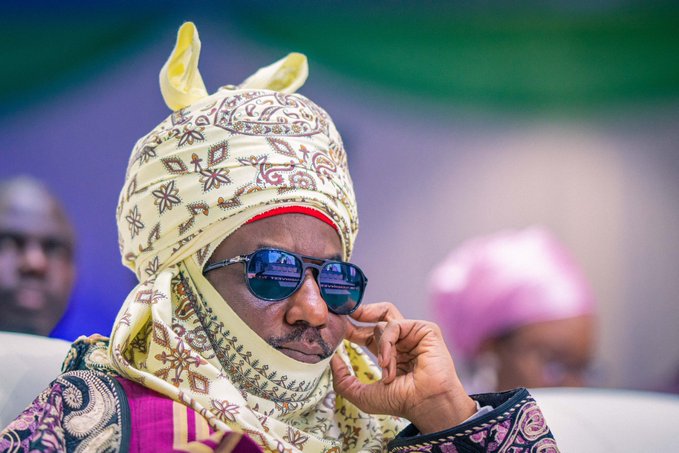The Federal Government has fired back at the Emir of Kano, His Highness, Muhammadu Sanusi II, stating that his approval is not needed for the administration’s reforms.
This was contained in a statement by the Minister of Information and National Orientation, Mohammed Idris, on Thursday.
NPO reports that the Emir had on Wednesday stated that he would no longer offer advice to the administration of President Bola Tinubu on how to address the country’s economic challenges.
Speaking at the 21st Memorial Lecture of Chief GaniFawehinmi in Lagos, the monarch revealed that he tried to help the government but has now resolved not to offer further assistance.
“I don’t want to help the government. They are my friends, but if they don’t behave like friends, I won’t act like one. So, I watch them struggle, and they don’t even have people with credibility to explain their actions.
“But I’m not going to help. I started out offering advice, but that’s not happening anymore. Let them come and explain to Nigerians why they are pursuing these policies. In the meantime, I’ll sit back and enjoy a good movie with popcorn” he said.
In response to his remark, the statement by the Presidency read ;
“First, we acknowledge that Sanusi, and indeed any Nigerian, has the inalienable right to express an opinion either in the form of commendation or criticism on how the government is being run.
“However, we find it amusing that a leader, more so one from an institution that ennobles forthrightness, fairness, and justice, would publicly admit to shuffling off telling the truth because of personal interest hinged on imaginary antagonism.
“It is pertinent to state that Nigeria is at a pivotal juncture where bold and decisive actions are necessary to tackle entrenched economic challenges. This administration has implemented transformative reforms not because they are easy, but because they are essential for securing Nigeria’s long-term stability and growth, as Emir Sanusi had consistently advocated.
“The temporary pains currently experienced from these inevitable decisions, as Sanusi himself acknowledged, are a “necessary consequence of decades of irresponsible economic management” more than anything else.
“These reforms are already delivering measurable progress. The unification of exchange rates has bolstered investor confidence, which has contributed to increased foreign reserves and strengthened Nigeria’s ability to shield itself from external economic shocks. The removal of the fuel subsidy has freed up significant resources, allowing for greater investment in critical sectors such as infrastructure, education, and healthcare. Projections from respected institutions, including the World Bank, show an upward trajectory in Nigeria’s GDP, signalling that our economy is firmly on the path to recovery. Additionally, by addressing inefficiencies, the country has reduced its debt service-to-revenue ratio, creating a more sustainable fiscal framework for future generations.
“It is deeply disappointing that reforms widely recognized as essential by global experts—including by Emir Sanusi II himself—are now being subtly condemned by him because of shift in loyalty. His Highness, given his background in economics, has a unique responsibility to contribute constructively rather than undermine reforms aimed at collective progress because he feels estranged from his “friends” in government.”
The statement further urged the Emir to rise above personal interests and partisan undertones and prioritize the greater good of Nigerians as rebuilding Nigeria requires unity, focus, and sacrifice from all stakeholders.
“As a government, we urge esteemed leaders to refrain from rhetoric that undermines public trust. Instead, they owe it a duty to champion the collective goal of a prosperous Nigeria. This is a critical time for our country, what is needed is collaboration, not unnecessary distractions.”


